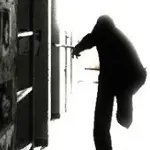The American TV show "Monster: The Jeffrey Dahmer Story" delves into the complex question of whether evil can exist without cause, innate and absolute. It continually probes this issue, directing its inquiries not only at the main character, Dahmer himself, but also at broader societal, economic, racial, familial, psychological, legal, religious, and unknown factors. By the end of the series, these mysteries remain unsolved, leaving viewers with even deeper doubts, confusion, and fear.
"Monster" is essentially a biographical film, focusing on the life of Jeffrey Dahmer, one of the most notorious serial killers and cannibals in American history. However, even in its most restrained narrative, his crimes are more shocking than any fictional crime story could be. Carl Franklin, one of the directors, has previously worked on “Mindhunter Season 2," another story about serial killers. As such, "Monster" shares a similar atmosphere to "Mindhunter," being dark, damp, heavy, slow-paced, and like an interminable nightmare without an exit.

The story about bloodshed and death could have been handled in a very dramatic way, but "Monster" deliberately chose to tell it in a dull manner. This is both a tribute to the truth of the events and an act of respect for the deceased. Instead, its calmness purifies and extracts the essence of cruelty. Those killings happen silently and are covered up quietly, giving off suspicious odours that slowly fade away into the world, leaving behind grieving families.
Most of Jeffrey Dahmer's victims were minorities—Black, Asian, and new immigrants—who were also sexual minorities. This raises the question: Were these killings motivated by racial and sexual biases? Evidence suggests otherwise. Dahmer's confessions and the evidence indicate that he did not exhibit bias in his choice of victims. He selected these individuals because he wanted to be close to them, or, as he claimed, because he could only afford to live in neighbourhoods where such people resided. Whether this explanation was an excuse or the truth remains an eternal question in understanding his motives.
The Dahmer family, equally intriguing, adds an essential dimension to understanding serial killer motivations. Jeffrey Dahmer grew up in a dysfunctional family with an anxious and irritable mother and a helpless and weak father. Despite extensive examination of his childhood through the lens of the camera, no significant revelations have emerged. While Dahmer did exhibit an inexplicable interest in dead animals from a young age, the significance of this remains unclear. Freud's psychoanalytic theory, once popular, is now viewed skeptically by the academic community. There is no solid evidence supporting the notion that childhood behaviors such as killing insects or small animals, experiencing parental divorce, or struggling with bedwetting lead inexorably to becoming a serial killer. Some children interested in animal dissection go on to become surgeons, and most children from single-parent families lead normal lives. So, why assume that these factors necessarily contribute to someone's deviant behavior? This raises another significant and unresolved question: Are some individuals simply unmanageable by society? Who can definitively answer this question?
If the motives and roots of crimes that cannot be accurately answered are all spiritual and endogenous, then there is also a series of social and external reasons that "indulge" and "maintain" Dahmer's crimes, which can almost be confirmed.

Dahmer was sent to live with his grandmother, who noticed his odd behaviour and the strange smell in the house. His father was also called over to investigate. Despite these signs, the family never thoroughly investigated, likely out of fear and avoidance. When Dahmer lived alone, neighbours repeatedly reported strange occurrences to the police, but their concerns were ignored. On one occasion, a confused boy collapsed at Dahmer's door, and Dahmer told the police it was his drunk boyfriend. The police believed him and let the boy return home. The combination of prejudice, police indifference, and institutional apathy in the black, low-income neighbourhood where Dahmer lived allowed his behaviour to continue unchecked.
If humans are considered a creation—whether divine or evolutionary—destined to make mistakes, what is the acceptable tolerance for these errors? This question delves into unknown territory. Following Dahmer's arrest, he expressed a desire for death, but due to the abolition of the death penalty in his state, he was sentenced to life imprisonment. During his time in prison, he claimed to have converted to Christianity. However, the priest's ambiguous gaze suggested doubt. While God is believed to love all people, can He truly accept someone as monstrous as Dahmer? Where is the boundary that defines a person as human? Was Dahmer genuinely cleansed after being baptized? Dahmer ultimately died at the hands of another inmate, who claimed to have been inspired by God to kill him. Is this act just, evil, sacred, or blasphemous?
There are many unanswerable questions like these. After Dahmer's arrest, he became an infamous "celebrity" in the world of evil. Some people sent money to him in prison for his autograph, while others turned him into the protagonist of horror comics. This made him happy and broke the hearts of the victims' families. So how should we choose between freedom of speech and punishing the wicked and promoting goodness? What kind of psychology does a serial killer fan have? Is it shallow curiosity and rebellion, or is it a reflection of the destructive and murderous desires buried deep in every human being? How should we treat these fans? After the entertainment industry took an interest in the subject of serial killers, it has been thoroughly commercialized and has been surrounded by a "charm aura." Is this portrayal morally right? This questioning also extends to the American TV series "Monster." Since its release, some family members of the victims have raised doubts about it. So is the retelling of the case an inquiry into the truth or a carnival of bloodshed? Where is the boundary between them?

The most puzzling aspect of the story is Dahmer's state of mind when he encountered one of his victims. This victim, a sunny, ambitious, and positive deaf-mute, never complained about his difficult situation. His enthusiasm and confidence seemed to almost infect Dahmer, the unrepentant demon, making him momentarily soft and hesitant. Although he ultimately raised the knife, his hesitation itself was almost a testament to the survival of humanity within him. It suggested that he knew the difference between good and evil and perhaps had a chance at redemption. However, this interpretation could also be nothing more than wishful thinking.
The building where Dahmer lived has been demolished, but memories remain in everyone's minds: should cruelty be forgotten or remembered? For the victims' families, remembering is torture, while Dahmer's neighbour who insisted on calling the police believes that remembering is a trial, a trial for Dahmer, for the apathetic police officers, and for the historical and current injustices faced by minorities. But does any of this truly matter?
The motivations of serial killers have always been a mystery. Some believe they were influenced by the brutality of the Vietnam War, while others point to the high divorce rate or the proliferation of pornography. During the Cold War, some even blamed capitalism. However, to this day, there is no clear answer. We can only understand and analyze the ordinary reasons for killing—money, love, and hate. But when torture and murder are linked to pleasure, entertainment, and an uncontrollable desire, everything becomes ambiguous. This challenges human civilization's values and calls into question all self-proclaimed claims of righteousness. Is this the result of a specific gene fragment damaged in our evolutionary history, a divine joke, or evidence that humans have not transcended other species? We simply do not know.
In "Monster," the judge who opposed the university's study of Dahmer's brain explained his stance by highlighting the complexity of the causes behind serial killers. He warned that oversimplification could lead to even greater disasters. However, despite the complexity, people still seek answers, even knowing they may never find them. It is through this search that we repeatedly find ourselves more confused. This seems to be humanity's destiny when faced with the serious examination of itself.






















































View replies 0
View replies 0